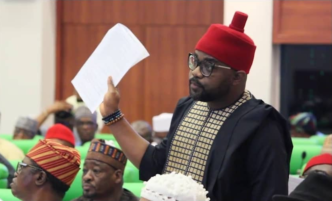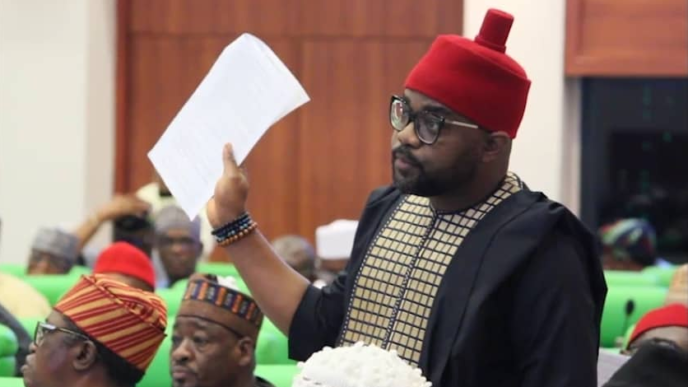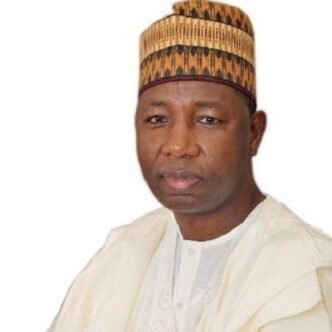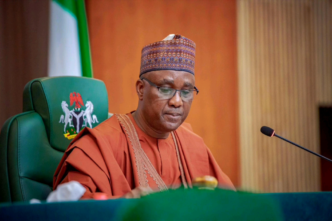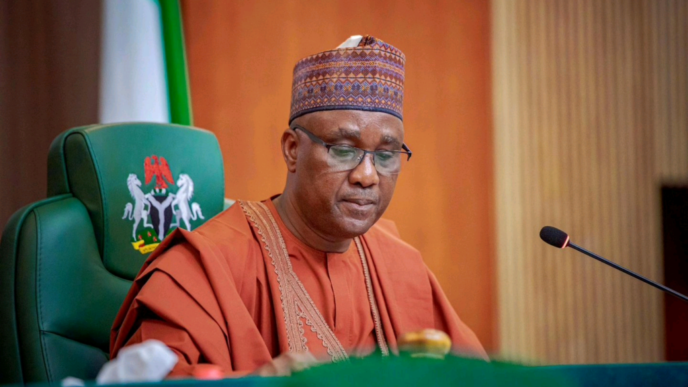HB. 619
A BILL FOR AN ACT TO ALTER THE CONSTITUTION OF THE FEDERAL REPUBLIC OF NIGERIA 1999 TO SPECIFY THE TIME WITHIN WHICH THE EXECUTIVE SHALL PRESENT TO THE NATIONAL ASSEMBLY ANY TREATY BETWEEN THE FEDERATION AND ANY OTHER COUNTRY FOR ENACTMENT; AND FOR RELATED MATTERS. Bill Sponsor: Hon. Anthony Oberuakpefe. Bill Progress: Committee Stage
This Bill seeks to alter Section 12 of the Constitution to specify a timeframe within which 20 the Executive must present to the National Assembly, any treaty entered into by the President, Ministers or any other member of the executive, between Nigeria and any other country, for such treaty to be enacted as an Act.
In a significant development in Nigeria’s legislative landscape, Bill HB. 619 has been introduced with the intention of amending the Constitution of the Federal Republic of Nigeria, 1999. This proposed legislation seeks to establish a specific timeframe within which treaties entered into by the Executive branch must be presented to the National Assembly for ratification.
Under the current constitutional framework, while the National Assembly holds the authority to enact treaties into law, there is no mandated deadline for the Executive branch to submit these treaties for legislative approval. This lack of a clear timeframe has led to concerns regarding potential delays in ratification, resulting in questions about transparency and accountability within Nigeria’s foreign relations. Bill HB. 619 aims to address these issues by instituting a concrete deadline, thereby ensuring that international agreements are processed in a timely manner.
The driving force behind this bill is rooted in the need to enhance the integrity of Nigeria’s treaty-making processes. By streamlining the requirements for treaty submissions, the bill seeks to foster a more efficient legislative environment where the roles of the Executive and the National Assembly are clearly defined and respected. Proponents argue that this amendment could serve as a critical safeguard against any potential overreach by the Executive branch, promoting a more balanced approach to governance and reinforcing the principle of checks and balances ingrained in the Nigerian Constitution.
In the realm of international diplomacy, timely ratification of treaties is vital. Delays in the legislative process can lead to strained relations with other countries that expect prompt action on agreements. For instance, if Nigeria enters into a treaty that aligns with international standards on trade, security, or environmental concerns, any unnecessary delay in ratification could jeopardize the benefits that the treaty is meant to offer. By imposing a deadline for submission to the National Assembly, Bill HB. 619 seeks to mitigate these risks, thereby enhancing Nigeria’s credibility on the global stage.
Moreover, the introduction of a stipulated timeframe for treaty submissions aligns with best practices observed in several democracies around the world. Many countries have established protocols that ensure the swift transition of treaties from negotiation to ratification, understanding that foreign affairs require agility and responsiveness. Nigeria, being a key player in regional and global politics, stands to benefit significantly from adopting similar measures, as it can better negotiate and implement agreements that reflect its national interests.
The discussions surrounding Bill HB. 619 also highlight the need for a broader dialogue on the role of the National Assembly in Nigeria’s governance. Legislators and stakeholders have emphasized that the amendment is not just about the timing of treaty submissions but about reaffirming the legislature’s critical role in shaping the country’s international commitments. Empowering the National Assembly with a structured approach to treaty ratification could serve to elevate the importance of legislative oversight in foreign policy decisions, fostering an environment where elected representatives can meaningfully engage with international issues on behalf of the Nigerian populace.
Opponents of the Bill, however, express concerns that imposing a rigid deadline could hinder the Executive’s ability to engage in nuanced negotiations that may take time to craft effectively. They argue that foreign policy is inherently complex, and the need for flexibility in these negotiations is paramount. Critics emphasize the importance of thorough consultations and deliberations that might not fit neatly within a imposed schedule. This presents a significant challenge in balancing the need for timely action with the intricacies of international diplomacy, raising important questions about how best to enhance the processes governing foreign relations without compromising essential diplomatic engagement.
As this bill progresses through the legislative process, it is essential for lawmakers to consider the implications of such an amendment carefully. Engaging with various stakeholders, including legal experts, foreign policy analysts, and the general public, is crucial to creating a well-rounded understanding of the potential impacts and benefits of this proposed legislation. Furthermore, public discourse around foreign relations and treaty-making practices should be encouraged, as an informed citizenry can play a vital role in holding elected officials accountable.
In conclusion, Bill HB. 619 represents a pivotal moment in Nigeria’s quest for enhanced governance and accountability in foreign affairs. By instituting a clear timeframe for treaty submissions to the National Assembly, the bill addresses long-standing concerns regarding executive delay and legislative oversight. As Nigeria continues to navigate an increasingly complex global landscape, the successful enactment of this Bill could signify a commitment to a more transparent and responsive system of governance—one that acknowledges the fundamental roles of both the Executive and the legislature in shaping the nation’s international commitments. The evolution of this bill will be closely watched, as it has the potential to redefine the relationship between Nigeria’s branches of government and enhance the country’s standing in global diplomatic circles.



